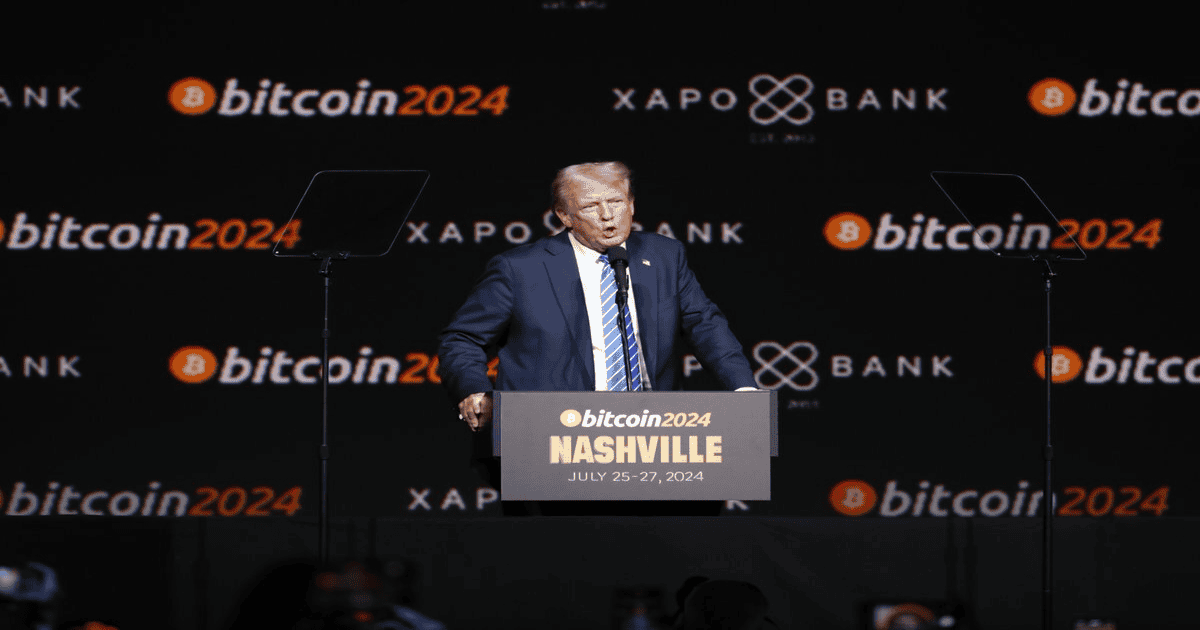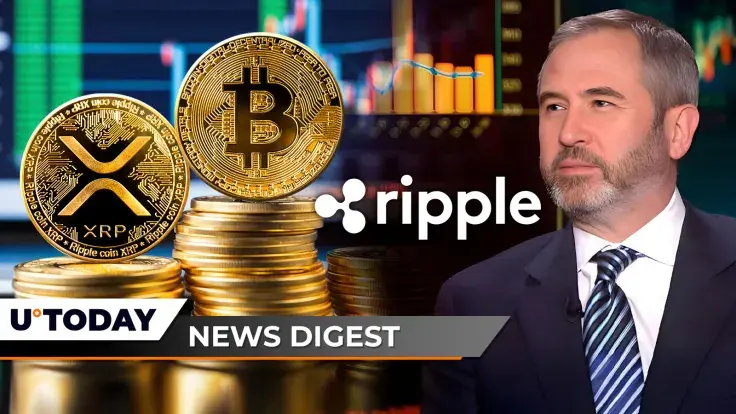Historic Shake-Up: US Government Dumps GDP Data on Bitcoin, Solana Blockchains!

The United States government has taken a landmark step by officially commencing the publication of gross domestic product (GDP) data on public blockchains. This significant move, announced by the Commerce Department, integrates blockchain technology into the core of America’s economic reporting. According to Bloomberg, GDP data is now accessible on nine distinct networks, including prominent platforms such as Bitcoin, Ethereum, and Solana.
Commerce officials have clarified that this blockchain rollout is not intended to replace traditional economic data releases but rather serves as “another avenue” for distribution. Despite this, the initiative carries profound symbolic weight, effectively granting a government seal of approval to a technology that was once met with deep skepticism within Washington. Mike Cahill, CEO of Douro Labs, who has collaborated with the Commerce Department on this project for two months, stated, “With today’s announcement we are now in a world where government data lives on blockchains, and market participants can participate in real time.”
The blockchain initiative primarily involves posting cryptographic hashes of GDP data. These hashes act as digital fingerprints, ensuring the integrity and verifiability of the information. While the initial scope is limited, officials confirmed that President Donald Trump’s administration plans to expand the program further. The project was spearheaded by Commerce Secretary Howard Lutnick, who reportedly told President Trump earlier in the week that statistics would be issued via blockchain “because you are the crypto president.” Lutnick has previously advocated for re-evaluating GDP reporting, specifically by excluding the impact of government spending.
This initiative represents a stark departure from the previous administration's stance. Under former President Joe Biden, regulators maintained a cautious approach to cryptocurrency, often clashing with exchanges and implementing restrictions on digital assets. In sharp contrast, President Trump has swiftly moved to integrate Bitcoin into government policy. Since assuming office, his administration has established a U.S. Bitcoin reserve, accumulated various cryptocurrencies including Ether and Solana, enacted legislation to regulate stablecoins, and appointed crypto-friendly regulators who have ended enforcement actions against major platforms like Coinbase. Furthermore, the Trump family has expanded its involvement in the digital asset space, backing ventures such as World Liberty Financial.
The growing political influence of the crypto industry is undeniable. Crypto firms were significant donors to Trump’s reelection campaign and contributed over $133 million to super PACs supporting pro-crypto candidates in 2024, as reported by OpenSecrets. The Commerce Department's adoption of public blockchains follows similar experiments by other government agencies. The Department of Homeland Security has explored blockchain for airport passenger screening, and California’s DMV has digitized car titles using crypto technology, according to Bloomberg.
Supporting this technological integration, the data is being published directly onto blockchain networks with the crucial assistance of Chainlink, a prominent “oracle” provider. Following this announcement, the price of Chainlink's native LINK token surged by more than 6%. Chainlink views this collaboration as a “key milestone” for government adoption of blockchain technology, highlighting its established presence with other major clients such as SWIFT, BNY Mellon, BlackRock, Visa, and Mastercard.
This policy shift coincides with recent economic performance data. The U.S. economy experienced a stronger-than-expected expansion of 3.3% in the second quarter, with consumption increasing by 1.6%. This marks the best quarterly performance since Q3, 2023, and represents an upward revision from a previous estimate of 3%. Economist Heather Long noted that while the economy is showing signs of slowing, it “clearly” continues to grow. Despite this relatively robust economic data, the Federal Reserve is still widely anticipated to implement interest rate cuts next month.
As President Trump solidifies his image as the “crypto president,” the adoption of blockchain technology for GDP distribution signifies a profound transformation in U.S. economic policy. This move further cements Bitcoin’s position as a powerful political and financial force within Washington.
You may also like...
Fake It Till You Burn Out: The Price of Performing Success on Social Media

In Africa’s digital age, success is performed, not earned. “Fake it till you make it” has become the new hustle but behi...
Christian Influencers or Culture Shapers? The New Battle for Morality Online

They call it ministry, others call it marketing. Inside Africa's booming world of Christian Influencers where moral meet...
Morning Routines of Highly Creative People And How to Build Yours

Want to know about the morning routines of highly creative people, from Maya Angelou to Oprah and learn how to design yo...
England Rugby Issues Bombshell Ban Threat Over Rebel Breakaway League

Major international rugby unions, including England and SANZAAR nations, have united against the proposed R360 breakaway...
Conor McGregor Struck with 18-Month UFC Doping Ban, Bizarrely Cleared for White House Bout!

UFC star Conor McGregor has received an 18-month ban for anti-doping violations after missing three whereabouts tests. T...
One Piece Update: Manga Faces Delay Amid Oda’s Health Concerns as Netflix Series Sets Sail for Season 2

Recent developments surrounding One Piece include creator Eiichiro Oda's health-related manga hiatuses and the highly an...
Daniel Day-Lewis' Shocking Comeback Flops Hard: One of 2025's Worst Box Office Debuts!

Legendary actor Daniel Day-Lewis makes his highly anticipated return to the screen in "Anemone," a psychological horror ...
Urgent Prayers for Country Queen Dolly Parton as Health Battles Emerge!

Country music icon Dolly Parton is facing health challenges, leading her sister Freida to call for prayers from fans wor...





